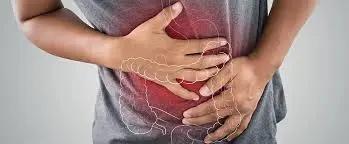Crohn’s disease is a complex and challenging condition that can significantly impact an individual’s quality of life. It is an inflammatory bowel disease (IBD) characterised by chronic inflammation of the digestive tract, Crohn’s presents a wide range of symptoms that can be difficult to pinpoint and diagnose.
In this guide, we’ll look into Crohn’s disease diagnosis, exploring the various tests and procedures gastroenterologists and other healthcare professionals use to uncover the underlying causes and tailor personalised treatment plans.
What is Crohn’s Disease?
Crohn’s disease is a type of inflammatory bowel disease (IBD), a group of disorders characterised by chronic inflammation in the gastrointestinal (GI) tract. Notably, this condition can impact any portion of the GI system, from the mouth to the anus, though it predominantly affects the small intestine and the beginning of the large intestine.
The symptoms of Crohn’s disease can vary in severity and may fluctuate between periods of remission and flare-ups. Common symptoms include:
- Diarrhoea
- Abdominal pain and cramping
- Fever
- Tiredness
- Blood in stools
- Mouth ulcers
- Reduced appetite and weight loss
Diagnosis
Crohn’s disease is a complex condition that can present in various ways, making it challenging to arrive at a final diagnosis. Unlike many other medical conditions, there is no single test that can confirm the presence of Crohn’s disease. Instead, healthcare providers must rely on a comprehensive evaluation of a patient’s medical history, physical examination, and a series of diagnostic tests to rule out other potential causes and arrive at an accurate diagnosis.
The role of medical history and physical examination
The diagnostic journey often begins with a thorough review of the patient’s medical history. Healthcare providers will question patients about the onset and progression of symptoms, any family history of inflammatory bowel diseases, and any previous medical conditions or treatments that may be relevant. This information helps to paint a clearer picture of the patient’s overall health and potential underlying factors contributing to their condition.
During the physical examination, healthcare providers will carefully assess the patient’s abdomen, looking for any signs of tenderness, swelling, or abnormalities. They may also perform a digital rectal examination to check for any issues in the anal or perianal region, which can be common symptoms of Crohn’s disease.
Initial diagnostic testing
Once the medical history and physical examination have been completed, healthcare providers will typically order a series of initial diagnostic tests to gather more information about the patient’s condition. These tests may include:
- Blood tests: Blood tests can help identify signs of inflammation, such as elevated levels of C-reactive protein (CRP) or the presence of certain antibodies associated with Crohn’s disease or anaemia
- Stool tests: Stool samples can be analysed to rule out the presence of infections or other gastrointestinal issues that may be causing the patient’s symptoms
- Imaging studies: Imaging techniques, such as computed tomography (CT scans), magnetic resonance imaging (MRI), or barium X-rays, can provide healthcare providers with a detailed view of the patient’s digestive tract, helping to identify any areas of inflammation or structural abnormalities
These initial tests serve as a crucial starting point, helping healthcare providers narrow down the potential causes of the patient’s symptoms and determine the need for more comprehensive diagnostic procedures.
Endoscopic examinations
If the initial diagnostic tests suggest the possibility of Crohn’s disease, healthcare providers will typically recommend one or more endoscopic examinations to obtain a clearer understanding of the patient’s condition.
Colonoscopy
A colonoscopy is a common diagnostic procedure used in the evaluation of Crohn’s disease. During this procedure, a healthcare provider uses a thin, flexible tube with a camera attached (known as an endoscope) to examine the entire length of the patient’s colon and the lower portion of the small intestine (the ileum).
During the colonoscopy, the healthcare provider may also collect small tissue samples (biopsies) from the affected areas for further analysis. The presence of specific microscopic findings, such as the formation of granulomas (clusters of inflammatory cells), can help confirm the diagnosis of Crohn’s disease.
Upper endoscopy
In addition to the colonoscopy, healthcare providers may also recommend an upper endoscopy to examine the upper gastrointestinal tract, including the esophagus, stomach, and the first part of the small intestine (the duodenum). This procedure can help identify any inflammation or other abnormalities in these areas, which can be indicative of Crohn’s disease.
Capsule endoscopy
For cases where the small intestine is suspected to be the primary site of Crohn’s disease, healthcare providers may recommend a capsule endoscopy. In this procedure, the patient swallows a small, pill-sized camera that captures images as it travels through the digestive tract. These images can help identify any areas of inflammation or other abnormalities that may have been missed by other diagnostic tests.
Advanced imaging techniques
In addition to endoscopic examinations, healthcare providers may also employ advanced imaging techniques to further investigate the patient’s condition and obtain a more comprehensive understanding of the extent and severity of Crohn’s disease.
Computed Tomography (CT) Enterography
CT enterography is a specialised imaging technique that uses a contrast agent to enhance the visibility of the small intestine. This procedure can help healthcare providers identify any areas of inflammation, narrowing, or other structural abnormalities within the small intestine that may suggest Crohn’s disease.
Magnetic Resonance Imaging (MRI) Enterography
Similar to CT enterography, MRI enterography uses a contrast agent to enhance the visibility of the small intestine. This imaging technique can be particularly useful in evaluating the presence of fistulas, abscesses, or other complications associated with Crohn’s disease, as it provides high-resolution images without the use of ionising radiation.
Balloon-assisted enteroscopy
In some cases, healthcare providers may recommend a balloon-assisted enteroscopy to obtain a closer look at the small intestine. This procedure involves the use of a specialised endoscope with an inflatable balloon at the tip, which helps the healthcare provider navigate deeper into the small intestine and identify any areas of concern.
Diagnostic approach
Crohn’s disease diagnosis often requires a varied approach, with healthcare providers drawing upon a combination of medical history, physical examination, and a variety of diagnostic tests to arrive at an accurate diagnosis.
Integrating test results
By carefully analysing the results of the various diagnostic tests, healthcare providers can piece together a full understanding of the patient’s condition. They will look for patterns and consistencies across the different test results to identify the specific areas of the digestive tract affected by Crohn’s disease and the severity of the inflammation.
Ruling out other conditions
An essential aspect of the diagnostic process is the exclusion of other potential causes of the patient’s symptoms. Healthcare providers will carefully consider and rule out other gastrointestinal conditions, such as ulcerative colitis, irritable bowel syndrome, or even infections, to ensure an accurate Crohn’s disease diagnosis.
Collaborative decision-making
The diagnosis of Crohn’s disease often involves a collaborative effort between the patient and their healthcare team. Healthcare providers will work closely with the patient to explain the diagnostic process, interpret the test results, and discuss the implications of the diagnosis. This open communication and shared decision-making can help ensure that the patient fully understands their condition and feels empowered to participate in their care.
Monitoring and follow-up
Once a Crohn’s disease diagnosis has been established, healthcare providers will typically recommend a comprehensive plan for ongoing monitoring and follow-up care.
Periodic evaluations
Regular check-ups and evaluations are essential for managing Crohn’s disease effectively. Healthcare providers will schedule periodic appointments to assess the patient’s symptoms, monitor the progression of the disease, and make any necessary adjustments to the treatment plan.
Surveillance Colonoscopies
Patients with Crohn’s disease may be advised to undergo regular surveillance colonoscopies to screen for the development of colorectal cancer, which is a known complication of the condition. These colonoscopies allow healthcare providers to closely monitor the patient’s digestive tract and detect any precancerous changes or early-stage cancers.
Adaptive treatment strategies
As Crohn’s disease is a chronic and often unpredictable condition, healthcare providers may need to adjust the patient’s treatment plan over time based on their response to therapy and the evolution of their symptoms. This adaptive approach ensures that the patient receives the most effective and personalised care to manage their condition effectively.
Conclusion
Diagnosing Crohn’s disease can be a complex process, but with the right healthcare team and a comprehensive approach, patients can find the answers they need to take control of their condition. By understanding the various diagnostic tests and procedures, patients can work collaboratively with their healthcare providers to navigate the path to an accurate diagnosis and develop a tailored treatment plan that addresses their unique needs.
Remember, early detection and effective management of Crohn’s disease are crucial for maintaining a good quality of life and preventing the development of potentially serious complications. If you or a loved one are experiencing symptoms that may be indicative of Crohn’s disease, don’t hesitate to seek medical attention to develop a comprehensive plan for managing this complex condition.
Sources
- Crohn’s Disease: What It Is, Symptoms, Causes & Treatment
- Crohn’s Disease Diagnosis and Testing |- Crohn’s & Colitis Foundation
- Crohn’s disease – Symptoms and causes – Mayo Clinic
- Crohn’s disease – Diagnosis – NHS
Medical Disclaimer
NowPatient has taken all reasonable steps to ensure that all material is factually accurate, complete, and current. However, the knowledge and experience of a qualified healthcare professional should always be sought after instead of using the information on this page. Before taking any drug, you should always speak to your doctor or another qualified healthcare provider.
The information provided here about medications is subject to change and is not meant to include all uses, precautions, warnings, directions, drug interactions, allergic reactions, or negative effects. The absence of warnings or other information for a particular medication does not imply that the medication or medication combination is appropriate for all patients or for all possible purposes.









